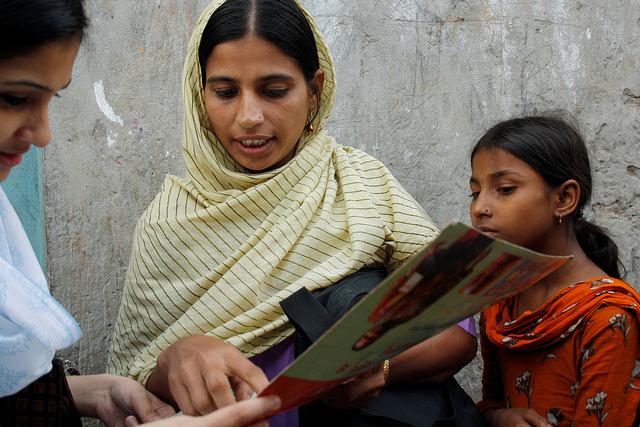
On September 6, 2018, the National Technical Committee of Bangladesh approved a pilot project to introduce subcutaneous DMPA (depot medroxyprogesterone acetate)—often marketed as Sayana® Press—for self-injection. The pilot will assess the contraceptive method’s acceptability and feasibility within the National Family Planning Program. Offering a method that can be administered without a health provider will help reduce the unmet need of underserved women and expand method choice.
Until now, the National Family Planning Program restricted subcutaneous DMPA including Sayana Press, citing limited evidence-based experience. However, when the Directorate General of Family Planning proposed generating evidence through research last year, it was rejected by the National Technical Committee. The committee projected that the self-administration would not be effective in the Bangladesh context, saying that many women have limited education and skills and that the method price would be too high.
Keen to advocate for contraceptive method mix and the advantages of Sayana Press to meet certain challenges, Advance Family Planning local partner Marie Stopes Bangladesh (MSB) joined the advocacy efforts. After some time to regroup and reposition, MSB held an Advocacy Advisory Group (AAG) meeting in April 2018. Group members agreed on the need for operational research to assess the feasibility of Sayana Press in Bangladesh. MSB worked with a Directorate General of Family Planning field service unit to carry this out. They also met with the Social Marketing Company, a local organization that introduced the contraceptive privately to clients in urban areas on a very small scale, to learn about limitations to offering the contraceptive. Based on these inputs and lessons from the previous proposal, MSB adopted a strategy to raise the issue again.
They facilitated a series of advocacy meetings with policymakers, civil society, international organizations, researchers, health professionals, and AAG members. They covered how other countries offering Sayana Press show that the self-administered method can help to reduce contraceptive injectable dropout rates, especially areas hard to reach by health workers. By organizing formal and informal dialogue sessions to raise awareness and responsiveness among the National Technical Committee members, MSB earned the opportunity to raise the issue at a committee meeting in June. MSB presented the dropout rates of family planning users, the communication challenges in rural areas, the shortage of service providers, and the lack of choice. They also reminded the government that they had committed to introduce new methods in the family planning program.
On September 6, MSB and the Directorate General of Family Planning field service unit facilitated a meeting of the National Technical Committee to discuss how best to act on the challenges MSB presented in June. The committee subsequently approved the pilot.
MSB facilitated a follow-up meeting with key stakeholders to consolidate support for developing the Operational Research Proposal collaboratively. The field service unit will submit it to the Bangladesh Medical Research Council for ethical approval by the end of October. The pilot project is expected to take one year.
MSB will continuously advocate with stakeholders to complete the research and introduce Sayana Press into the National Family Planning Program—empowering women by creating choice and self-reliance.

